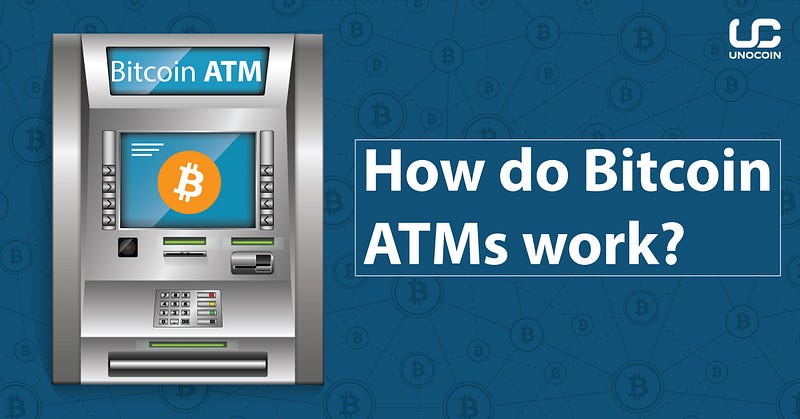
Bitcoin ATMs, also called Bitcoin Teller Machines (BTMs), aren’t really ATMs in the true sense of the term. Rather, these are physical centres where you can buy Bitcoins with fiat money and with some machines, sell Bitcoins too. Bitcoin ATMs are meant to offer access to Bitcoins to those who are not a part of the banking system.
Bitcoin ATMs also cater to the underbanked and the less tech-savvy people. Some just prefer the extra privacy that some BTMs offer when it comes to buying Bitcoin. Estimates peg the number of Bitcoin ATMs all over the world at around 1600, an exponential rise from just two years back when the number hovered around 450.
How do you use a BTM?
- Search online to find a BTM near you. You can use services like CoinATMradar to locate your nearest BTM.
- Depending on the manufacturer, the machine may support two-way transactions between Bitcoin and fiat money, that is, it allows you to buy as well as sell Bitcoin. Most machines only support fiat to Bitcoin transactions, that is, you can only buy Bitcoin with fiat money. Fiat money is nothing but legal tender issued by a government. It’s your basic currency of the country: rupees, dollars, roubles etc.
- Very few machines allow you to buy Bitcoins without any ID, as most require your phone number or some other ID detail for access. Depending on the machine and the operator, you may have to divulge personal information to varying degrees. This is to meet compliance requirements and to keep your Bitcoins secure.
- A BTM looks more or less like an ATM. You might be required to key in your phone number. After verification with a One Time Password (OTP), you are good to go and can buy Bitcoin now using the BTM. Some BTMs might require you to use the BTM scanner to provide an ID card such as a driver’s licence, passport etc.
Buying Bitcoin
- Now that you’ve registered and verified your identity, it is time to buy some Bitcoins. Just enter the dollar amount for which you want to buy and slip in the fiat notes one by one into the designated deposit area.
- After depositing the money, the machine either prints an offline wallet for you or sends Bitcoins to your Bitcoin wallet. Some machines might also offer to send your Bitcoins to your email address.
- When you first start a Bitcoin wallet you get a slip of paper with a QR code printed on it. You can scan the code to get the private key and then use the private key in a wallet to gain access to the Bitcoins you’ve bought.
- If you want the Bitcoins to be sent to your pre-existing wallet, you can scan a QR code representing your wallet address using the BTM scanner. Bitcoins are directly transferred to your wallet.
- If you choose to receive your Bitcoin by email, the QR code is sent to your email. Some services allow you to set a password to encrypt the email.
Once you’ve bought Bitcoins, you can now use them or just stay invested. The price of Bitcoin at these machines is typically 5–10% higher than the present going rates on exchanges due to added expenses such as rent, machine maintenance, regulatory requirements, charges, and volatility. Some still prefer to use these machines due to the ease of access or in the case of machines that don’t require an ID, absolute privacy.
Selling Bitcoin
- To sell Bitcoin, you have to enter the amount of Bitcoin you want to sell and send it to the address displayed on the machine screen. Fiat money is dispensed after the transaction is complete.
The selling price offered at BTMs is also 5–10% less than the exchange rates.
The transaction process
The BTMs save Know Your Customer (KYC)/Anti Money Laundering (AMC) details, scrutinise them and report suspicious activity to the regulatory authority. After obtaining these details, the machines allow you to buy Bitcoin. The operators buy Bitcoin from exchanges and allow BTM users to withdraw Bitcoin from their wallets. One can buy as much Bitcoin as the operator holds.
Operating a BTM
In most jurisdictions, operating a BTM is a challenging task. BTM operators have to meet stringent regulatory norms. In the United States, operators have to register under the federal financial crimes enforcement network as well as obtain state-specific money transmitter licence.






